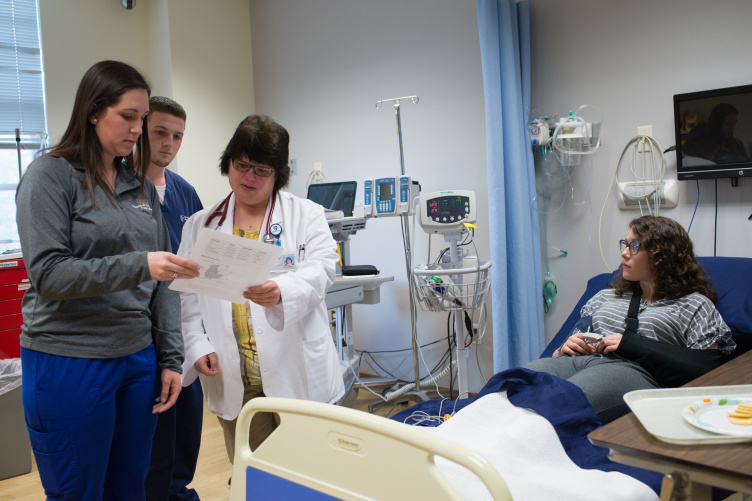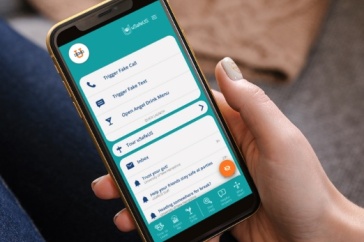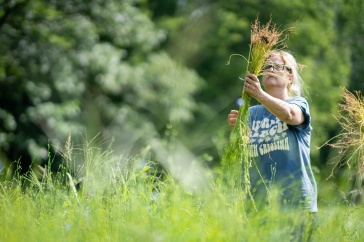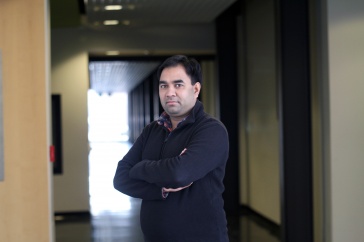
Amanda Stowers '17, (biomedical science) Shawn Murray '18 (nursing) and Kathryn Essig (graduate student, family nurse practitioner) discuss treatment options for “patient” Isabelle Beagen '18, (theatre major) as part of an interprofessional course that teaches future providers to work together.
When someone gets sick, or is hospitalized, the people charged with his or her care can include doctors, nurses, nutritionists and occupational therapists, among others. Which is why it makes sense to have the education of those future caregivers include training on how best to work together.
To that end, the College of Health and Human Services (CHHS) launched an interprofessional education (IPE) course during the spring semester that was so successful, it will be offered next fall. The class had students from several CHHS majors teaming with those from the College of Life Sciences and Agriculture (COLSA) as they learned about patient care.
“I didn’t know my group members going into the class, but in just six classes we were able to create a patient scenario and work seamlessly as a team to assess the patient's needs.”
Coursework combined classroom lectures and clinical simulations, affording students a glimpse into real world settings where they will encounter situations requiring coordinated care — a nurse working with a social worker, for example, or an occupational therapist. Students from six CHHS and two COLSA majors participated in the pilot “Who’s on First, Interprofessional Colloquium,” spearheaded by Patricia Puccilli, assistant clinical professor and director of the undergraduate nursing program and simulation lab.
Puccilli says the course was designed to help students develop competencies related to values and ethics, roles and responsibilities, interprofessional communication and teamwork. Applicable majors include nursing, occupational therapy, communication disorders, nutrition, health management and policy, kinesiology, recreation management and policy, family studies and social work.
“This course was a win/win not only for students coming together to develop skills to elevate their position in the healthcare environment but also for participating faculty who will be able to use these strategies in their other courses,” Puccilli says.
The hybrid course included six three-hour on-campus workshops, two of which took place in the simulation lab in Hewitt Hall. Working in teams, students diagnosed a live “patient” and made treatment recommendations while the scenario was livestreamed to other course participants and faculty who observed from the adjoining classroom.
“No matter what setting I’m in as a nurse in the future, I will always be working with a team of other healthcare professionals to provide the best care possible for our patients,” says Elizabeth Lapsley '18. “Taking this class allowed me to apply my nursing skills to a patient scenario and figure out how to work as a team to take care of the patient. I didn’t know my group members going into the class, but in just six classes we were able to create a patient scenario and work seamlessly as a team in the simulation lab.”
Kali Cook '18, an athletic training major, says the class gave her a basic knowledge of other healthcare professions and insight into how they relate to her specific field. “I honestly hadn't realized how much carryover there was into everyone's area of specialty,” she says. “There is so much I walked away with, and it has opened my eyes to a vast array of possibilities and opportunities. I plan on continuing my education in interprofessional care as I advance within my career.”
-
Written By:
Jody Record ’95 | Communications and Public Affairs | jody.record@unh.edu


















































